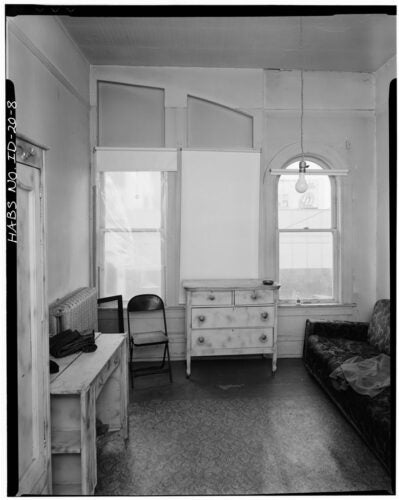
These days, the Boise ethos tends towards the upbeat and sporty. The city is famous for its safe spaces to walk and recreate, and a calendar that teems with family activities and wholesome community events.
But was the City of Trees always so bright and smiley? Not really, said Todd Shallat, a Boise State professor emeritus of history and urban studies, and author of numerous books on Boise history.
Shallat will teach Gothic Boise, a one-credit workshop, in February.
The workshop, focused on the folklore of old Boise and what Shallat terms the “memory of place,” will cover lynchings (yes, they happened here), murderous back alleys, allegedly haunted sites, racy movie theaters, Boise’s apocryphal Chinese tunnels that historians have disproven but that live on as urban legend and, said Shallat, “some queer history from the dark days when gays were underground.” Other topics include architecture, cemeteries, urban renewal and the politics of historical commemoration.
“I don’t really believe in curses. I don’t believe in the supernatural. But it’s fun to look at these places, look at the legends that surround them, look at modern buildings that are there now, and see how they function in urban design,” said Shallat.
“Urban folklore connects us to our civic identity,” he added.
He wants his workshop to draw a mix of “old timers and new timers” and to encourage open conversation on challenging topics. Attendees will be able to share their own musings and memories of old Boise. Shallat will share “lots of cool slides” featuring historic images of the city.
Shallat’s workshop will be unique in a couple of respects. Not only will it include guest lecturers and dark night walking tours, the group will meet at Dawson-Taylor Coffee on 8th Street in Downtown Boise.
“My hope is that people will appreciate the tradition, dating back to London in 1651 when King Charles tried to shut down coffee houses – places of informal rebellion and dangerous talk,” said Shallat. Coffee houses, he said, were places where “artists and writers – or any stranger – could slam down a treatise or chalk a limerick, or expound on an idea. Caffeinated conversation became a kind of socialization that brought travelers and misfits into the fold.”
He’s hoping for something similar to take place when workshop attendees gather to sip strong coffee, then roam the city’s storied streets.
The class, listed as history 294/494, will meet from 5-9 p.m. on Tuesday evenings, Feb. 5, 12, 19 and 26.